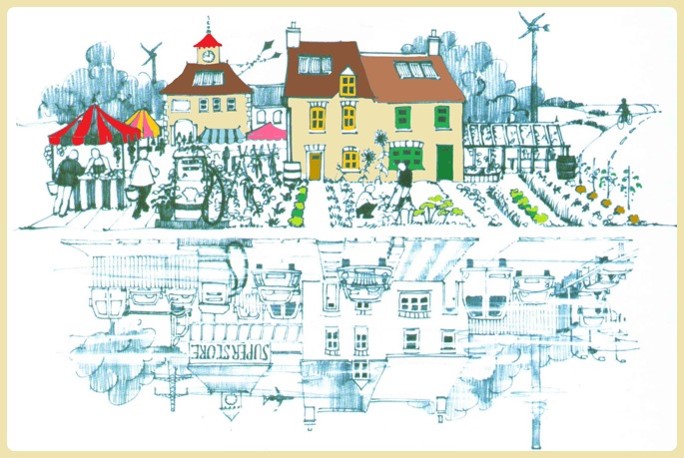
In 2006 an idea was born – what would a community response to the big challenges the world faces look like? The first Transition group formed in Totnes, UK and since then the movement has spread worldwide and can now be found in over 50 countries. By coming together, communities are able to crowd-source and experiment with solutions that include reclaiming the economy, sparking entrepreneurship, re-imagining work, re-skilling themselves and weaving webs of connection and support.
Transition Network was established in 2007 to support the growing Transition movement. It works to amplify stories of community-led change and nurture collaborations across difference to challenge us all to re-imagine and re-build our world.
Why did you join the Rapid Transition Alliance?
Transition Network is committed to learning from and amplifying stories of transition, stories which can inspire, inform and empower us all to make the changes needed to move to a sustainable and socially just world. As we all try and play our part in responding to the global challenges we face, it is crucial to put energy where we think it can release the most potential. We joined the Rapid Transition Alliance to be part of a coordinated effort to connect up groups and organisations; sharing stories, examples, and evidence that transition is possible and is happening.
What for you is the biggest challenge of rapid transition?
The dominant systems we operate within are incredibly resilient and complex, which can make it difficult for people to identify the changes they want to bring about, let alone feel empowered to act. We need to make shifts as individuals and collectively, changing our belief systems and culture as well as our infrastructure and institutions, and working at different levels of scale from community to global. Systemic transitions such as this cannot be planned or directed and perhaps not even clearly identified as they are happening. Instead, we have to look for opportunities to move in a healthy direction from wherever we are, however and whenever possible. A key challenge is to stay grounded, open and compassionate, finding ways to bring agility, empathy and courageous creativity into our work when it is so easy to feel overwhelmed and disempowered by the scale and the urgency of the problems we seek to address.
What is your organization doing to encourage rapid transition?
Transition Network is supporting innovative parts of the Transition movement to grow – nurturing experimentation, encouraging reflection, sharing learning, and connecting groups so that together we can bring about the changes within ourselves and our systems that the world needs.

The groups that we support and the stories that they can tell us help to re-frame our understanding of power as not simply being about money or resources or status, but about our collective knowledge and skills and experience and passion for the world and each other.
What is your favourite example of rapid transition?
There are so many powerful and inspiring examples of people joining together to bring about change that it is hard to call any single one our ‘favourite’. However, the story of the 1961 Cuban Literacy Campaign is particularly interesting as it shows what can be achieved when strategy, resources and people power are aligned for a common goal. In just one year Cuba’s literacy rate leapt from between 60-76% right up to 96% with over 700,000 people taught to read and write by over 250,000 volunteers, many of whom were women and young people. Through working together, as teachers or students, bridges were built between those from the cities and those from the countryside, creating a strong sense of commonality as well as improved conditions for the population as a whole.
What one thing would best help the task of rapid transition?
We believe in the transformative power and impact of storytelling. Through our collective stories we can inspire possibility, we can prove that transition can happen, we can believe ourselves to be the experts that we need, and we can be energised by knowing what can be achieved if we take action together to re-imagine and rebuild our world.